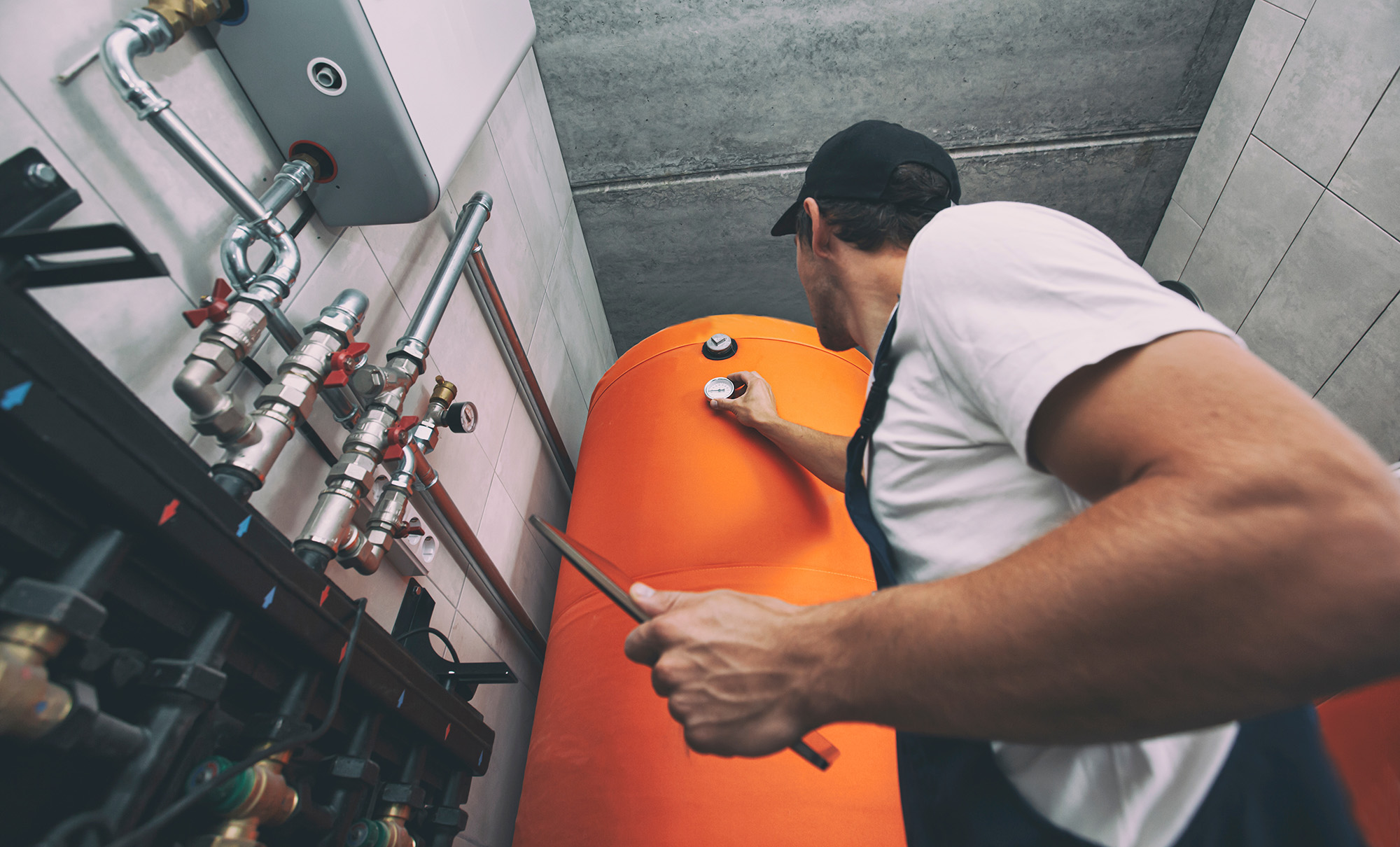States from coast to coast have signed a joint agreement to accelerate the transition to pollution-free residential buildings by significantly expanding heat pump sales to meet heating, cooling, and water heating demand in coming years. The Memorandum of Understanding (MOU), led by the Northeast States for Coordinated Air Use Management (NESCAUM), has been signed by directors of environmental agencies from California, Colorado, Maine, Maryland, Massachusetts, New Jersey, New York, Oregon, and Rhode Island.
Under the MOU, these states have set a shared goal for heat pumps to meet at least 65% of residential-scale heating, air conditioning and water heating shipments by 2030 and 90% by 2040 across the participating states. States will also collaborate to collect market data, track progress, and develop an action plan within a year to support the widespread electrification of residential buildings.
This MOU builds on a September 2023 commitment from the U.S. Climate Alliance’s member states and territories to quadruple heat pump installations by 2030.
Efforts to Transition to Clean Residential Buildings
“Heat pumps and building electrification are the future for healthier homes and a thriving green economy,” said Maryland Department of the Environment Secretary Serena McIlwain. “This multi-state partnership will help Maryland meet its ambitious climate goals and strengthen a coalition of states for cleaner air and better health outcomes.”
Buildings are a hidden source of air pollution, which comes from combustion of fossil fuels in furnaces, boilers, and water heaters. According to NESCAUM, fossil-fueled heating equipment across the participating states emits annually over 138,000 tons of smog-forming nitrogen oxides (NOx) and 6,000 tons of fine particulate matter, causing increased risk of heart attack, asthma events, premature death, and many other adverse health outcomes. Buildings also annually emit 173 million metric tons of CO2 across participating states.
To pave the way for widespread adoption of heat pumps, the agreement emphasizes collaboration with key stakeholders, including heat pump manufacturers and HVAC installers. The transition to efficient electric heating, cooling, and water heating has the support of major market players and manufacturers.
“To achieve our shared decarbonization goals, we need to send an unmistakable signal to the marketplace that zero-emission homes are the future. This agreement does that,” said Matt Rusteika, Director of Market Transformation, Building Decarbonization Coalition. “We applaud NESCAUM and state leaders for a commitment that is ambitious, flexible, and pragmatic.”
To lead by example, states signing the NESCAUM-led MOU committed to promote installation of zero-emission, grid-interactive technologies in existing state buildings. States also seek to direct at least 40% of efficiency and electrification investments to benefit low-income households facing high energy burdens and communities historically burdened with elevated air pollution levels.
A recent letter from business-focused Ceres united 24 businesses, investors, and building owners and operators in stating support to accelerate heat pump adoption. Last year, ten of the nation’s largest manufacturers committed to help California achieve its target of six million heat pumps by 2030.
“State policy is critical to accelerating the adoption of building technologies that are good for the climate and good for business. Initiatives that encourage collaboration across state lines to develop best practices are essential to accelerating this transition,” said Alli Gold Roberts, Senior Director of State Policy, Ceres.
Related Stories
Metals | Sep 11, 2023
Best practices guide for air leakage testing for metal building systems released
The Metal Building Manufacturers Association (MBMA) released a new guidebook, Metal Building Systems - Best Practices to Comply with Whole-Building Air Leakage Testing Requirements.
Office Buildings | Aug 31, 2023
About 11% of U.S. office buildings could be suitable for green office-to-residential conversions
A National Bureau of Economic Research working paper from researchers at New York University and Columbia Business School indicates that about 11% of U.S. office buildings may be suitable for conversion to green multifamily properties.
Multifamily Housing | Aug 23, 2023
Constructing multifamily housing buildings to Passive House standards can be done at cost parity
All-electric multi-family Passive House projects can be built at the same cost or close to the same cost as conventionally designed buildings, according to a report by the Passive House Network. The report included a survey of 45 multi-family Passive House buildings in New York and Massachusetts in recent years.
Regulations | Aug 23, 2023
Gas industry drops legal challenge to heat pump requirement in Washington building code
Gas and construction industry groups recently moved to dismiss a lawsuit they had filed to block new Washington state building codes that require heat pumps in new residential and commercial construction. The lawsuit contended that the codes harm the industry groups’ business, interfere with consumer energy choice, and don’t comply with federal law.
Sustainability | Aug 15, 2023
Carbon management platform offers free carbon emissions assessment for NYC buildings
nZero, developer of a real-time carbon accounting and management platform, is offering free carbon emissions assessments for buildings in New York City. The offer is intended to help building owners prepare for the city’s upcoming Local Law 97 reporting requirements and compliance. This law will soon assess monetary fines for buildings with emissions that are in non-compliance.
Green | Aug 7, 2023
Rooftop photovoltaic panels credited with propelling solar energy output to record high
Solar provided a record-high 7.3% of U.S. electrical generation in May, “driven in large part by growth in ‘estimated’ small-scale (e.g., rooftop) solar PV whose output increased by 25.6% and accounted for nearly a third (31.9%) of total solar production,” according to a report by the U.S. Energy Information Administration.
Resiliency | Aug 7, 2023
Creative ways cities are seeking to beat urban heat gain
As temperatures in many areas hit record highs this summer, cities around the world are turning to creative solutions to cope with the heat. Here are several creative ways cities are seeking to beat urban heat gain.
Government Buildings | Aug 7, 2023
Nearly $1 billion earmarked for energy efficiency upgrades to federal buildings
The U.S. General Services Administration (GSA) recently announced plans to use $975 million in Inflation Reduction Act funding for energy efficiency and clean energy upgrades to federal buildings across the country. The investment will impact about 40 million sf, or about 20% of GSA’s federal buildings portfolio.
Codes and Standards | Aug 7, 2023
Cambridge, Mass., requires net-zero emissions for some large buildings by 2035
The City of Cambridge, Mass., recently mandated that all non-residential buildings—including existing structures—larger than 100,000 sf meet a net-zero emissions requirement by 2035.
Multifamily Housing | Jul 31, 2023
6 multifamily housing projects win 2023 LEED Homes Awards
The 2023 LEED Homes Awards winners in the multifamily space represent green, LEED-certified buildings designed to provide clean indoor air and reduced energy consumption.


















